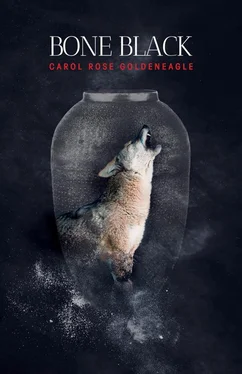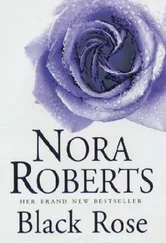But who wants to share space with a dead woman in a coffin? Wren hid the photo away, deep in a dresser drawer where no one could see it—out of sight and out of mind. Lord didn’t seem to notice the displacement of the photo. Or at the very least, he didn’t mention that it was no longer prominent on the mantel in the family room. When Wren had buried the photo in the drawer, she thought of Lord’s description of his childhood, about the Magras curse, about how no one could pass the threshold. Could it have migrated here with the photo, to her childhood farmhouse?
*
“I will start working again, my dear Lord,” she promises.
“Maybe you can start by doing some volunteer work. It’s unpaid but I think it might help you move forward,” Lord suggests. Lord tells her about a project his firm is working on: an outdoor play space in an abandoned lot behind one of the downtown women’s shelters.
“The kids who stay there need to have a safe space to play so we’re designing a greenspace constructed with mostly recycled materials. Some of them need someone to look after them while we’re doing the work.”
Wren knows that since Raven disappeared, she’s doing nothing more than filling up space. One day just seems to blend into the next and some days it’s an ordeal for Wren just to get out of bed. What her husband is suggesting now means she’ll be creating something with a purpose again, something that will witness the joy and laughter of children, and that’s a good start.
“It is too quiet here with nothing but my thoughts,” Wren responds, “and I do like to be around children.”
“My firm will even throw in for the cost of materials if you choose to do something… perhaps teach the kids pottery.”
Lord can see the idea resonates with his wife. He also knows it’s good medicine for her broken heart. His, too. He’s always wanted a family, but things happen, he realizes, and neither he nor his wife are responsible for the common reality that not all babies are carried to term. This one went away. They will try again, when times are not so turbulent. The sun will shine again.
“I’ll do it,” Wren proclaims. “I will fire those children’s work in my outdoor kiln.” Then turning to Lord she says, “These sweatpants need to be thrown in the wash. Want to help me take them off?”
“It will make Mommy so happy to see this!”
Little Jeremy Lafond can’t hide his delight as he puts the finishing touches on his pinch pottery, a technique that doesn’t require throwing clay on a wheel. There is no wheel here. Only children and loads of loose clay in a box. It warms Wren’s heart to see Jeremy has picked up the material and has taken to moulding it, like hugging an old friend.
Lord’s firm came through. It supplied boxes of clay and other materials necessary for the creation of pottery. Wren calls it an “unpaid residency” when people in town ask what she’s up to these days.
Wren notices that Jeremy is missing a tooth, which is not surprising. That’s something that happens to six-year-olds. His mother, though, is also missing a tooth but not because she’s shedding baby teeth. Her tooth was loosened when she was punched in the face by her boyfriend. It was so badly damaged that it had to be removed. Stella and Jeremy have been living in the women’s shelter ever since.
No one ever brings up the topic of Raven’s disappearance anymore. They’re probably uncomfortable that Wren would burst out crying whenever they’d inquire. However, the tragedy did result in changes within the community. A night-watch walk made up of volunteers has been organized. They patrol each Thursday, Friday and Saturday from ten at night until two in the morning. Even the local service club has revamped its policy on highway cleanup since the summer. Because of Wren and Raven, it will check with rcmp first to make sure that being a good Samaritan will never again mean clearing away potential evidence along the highway.
The local church mentions Raven in their prayers each Sunday. That part hasn’t changed. Parishioners have mentioned the sisters during their services these past months, asking for resolution and healing. Wren is grateful for this as well, even though she’s only ever attended services at the United Church a handful of times. She’s pretty much isolated herself, finding that when she does venture out, the worry of others easily transfers to her, making her exhausted. And she already has more than enough of that on her own.
At the women’s shelter, Wren is grateful to spend time bringing joy and healing to others through the creation of art. No one here knows about what happened to Raven. No one knows her sadness from losing the baby and because of that, no one asks questions or makes comments. There are only moments of joy when she shows up with a box of clay and ideas to share with the children. She experiences the clearing away of sadness, if only for fleeting bits of time. The happiness she sees in faces like Jeremy’s warms Wren’s heart. She watches the boy move his fingers over the clay, shaping a bowl for his mother. He traces a heart onto it. A child’s love. Pure, trusting and so real she can feel it.
“I love this, Jeremy,” she finds herself saying, wiping the tear that’s formed on her face and replacing it with a smile. “This little heart that you have engraved on this bowl is just beautiful.”
“I put the heart on it because I love Mommy. I want her to be happy again,” he explains.
Wren hasn’t slept properly in months and along with the suggestion that Wren do some volunteer work with children at the shelter, Lord has found a little blue pill to ensure a good night’s rest. He came home two days ago with a prescription for Zopiclone—a prescription he picked up for himself—but proposed that Wren take it as well. She’s been keeping him up at night as she tosses, turns, sighs and cries.
Along with the meds, there is a routine now too which she finds comforting: Lord makes them both some tea, then spoons some honey into the hot mug before delivering it to her in bed. He insists that each night before turning out the light, they share affirmations and reasons to be grateful, She finds that the ritual helps her and allows her the strength to do her work in the women’s shelter, in a setting where tragic, real stories lie just around the corner. These women, these mothers like Stella, are here not by choice but because of violence and abuse. But at the shelter, their sad memories are not allowed to be buried. The abuse is acknowledged and then it is banished, held off by light and love and ways of rebuilding. Healing the heart. Restoring hope.
This is why building this pottery piece with Jeremy prompts Wren to share her own good memories of childhood, the way childhood is meant to be, filled with wonderment and magic. Wren decides to tell Jeremy a story told to her by Kohkum, the same story told to her when Wren’s own first tooth fell out. “It was the end of day,” Wren starts, “and we’d all been bathed and Kohkum read to my sister and me a story from a book. I love remembering how we would be cuddled in her arms, all warm under a blanket. Kohkum always made sure that our tummies were full of snacks, with dry meat and apples. That dry meat was yummy but hard to chew. And that’s when my first tooth fell out.”
Jeremy is eager to hear what happens next.
“I told Kohkum that I needed to put that tooth under my pillow because the tooth fairy was going to come and leave me a quarter, but Kohkum told me, ‘No, that’s not what happens.’ So she told me about the Little People.”
Wren goes on to describe that the Little People are invisible spirit helpers in the Cree culture. “Kind of like guardian angels I suppose. We can’t actually see them, but we know they’re always around.” She tells Jeremy that the Little People will come during the night, take his tooth and will offer up his tooth to the universe.
Читать дальше












